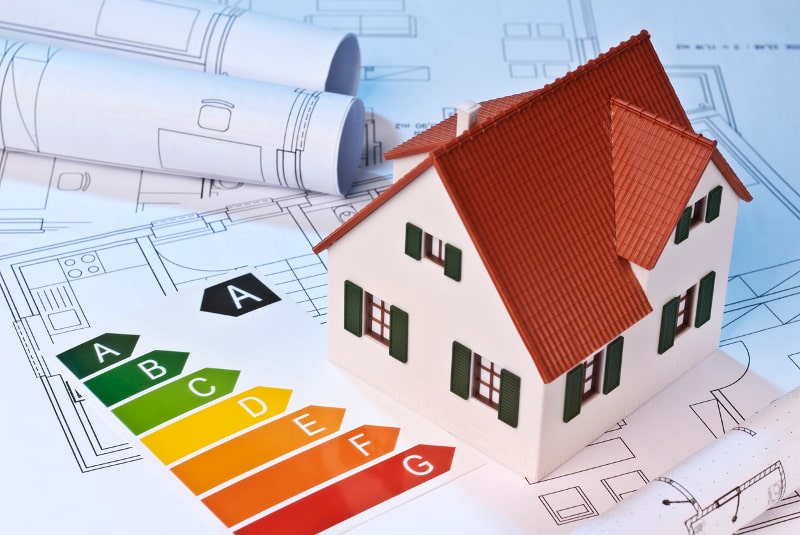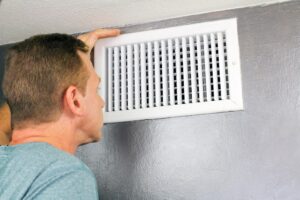When it comes to HVAC systems, it’s all about efficient energy use. These days, that means focusing on reducing energy consumption and ensuring that your HVAC system in Alburtis, PA, is operating at peak performance levels. Here are five surprising factors that impact HVAC efficiency and how to keep them in check throughout the year.
1. Dirty Air Filter
The air filter is a common culprit in making your AC less efficient. That’s because dirty filters cause your unit to work harder to pull and push enough air through them. That’s not even taking into account what happens when a filter gets too clogged.
Most manufacturers recommend changing your filters every three months, but if you live in an area with high pollen or dust, you may need to change it more often. If you don’t have a standard-size filter on hand or notice your system blowing air at half-power, call in a technician for help.
2. Blocked Air Flow
If you have poor ventilation in your home, the air isn’t circulating as it should be. Blocked airflow could contribute to dust or carbon dioxide buildup, causing breathing difficulties and other health issues over time.
3. Placement
Where your unit sits in relation to windows, doors and the sun can have a big impact on efficiency. An ideal location for your HVAC unit is 5 feet away from any exterior wall or window where obstructions block airflow. Another common mistake is putting ducts on exterior walls when they should be inside. By insulating interior walls, you’re saving energy that is otherwise lost to conduction and convection through improperly placed ductwork.
Finally, don’t skimp when it comes to insulation. There are always extra gaps at every connection point around pipes, wiring and anything else going into your home. These often account for up to 10% of heat loss per year.
4. Insulation
Using fiberglass or foam insulation is a good way to make your home more energy-efficient and protect against drafts. However, an improper installation can actually result in little benefit for your home. If you use blown-in insulation, for example, it’s very easy to end up with open gaps between wall studs and walls, be sure the installation is completed properly.
Quality insulation should make all of your rooms uniformly more energy-efficient. It’s also important to keep in mind that some forms of insulation are better suited than others.
Fiberglass, for example, doesn’t work well on exposed basement walls unless you provide protection from moisture. Water vapor becomes trapped inside fibers of cellulose materials. Over time, these materials rot away, which is the same reason many basements have problems with biological contaminants, and their integrity ultimately diminishes.
5. Age of the Unit
As an air conditioner ages, it loses efficiency. Each year after the installation of your unit, its energy star score will decrease by 1%. If you’ve owned your unit for five years or more and have never had a tune-up, your energy star score is likely to be 10% lower.
These scores are averages as some units will lose much more than others due to poor maintenance or inefficient installation. Think about replacing old equipment as part of a comprehensive energy-efficiency plan for your building. A professional evaluation can help you determine if investing in new HVAC equipment makes sense for both energy savings and cost savings over time.
Now that you know the factors that influence the efficiency of your HVAC system, you can take the necessary action to enhance its efficiency. Contact Sullivan Oil and Propane for all your HVAC system maintenance needs.
Image provided by iStock



